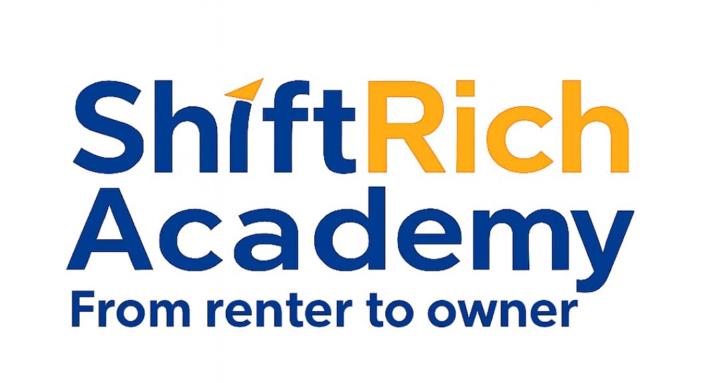Aug '25 • 👋 Thomas Q&A
How can aspiring real estate investors mitigate risks and optimize their property choices?
Aspiring real estate investors can mitigate risks and optimize their property choices by focusing on financial preparedness, smart property selection, and thorough due diligence.
Here's how to approach these aspects:
Mitigating Risks:
• Financial Readiness
◦ Prepare your down payment funds. Most lenders require 15% to 20% down for investment properties, meaning you might need anywhere from $15,000 to over $100,000. Real estate investing is often better for those who already have a decent amount saved.
◦ Consider FHA loans if short on cash, which allow for a 3.5% down payment, but require you to live in the property for at least one year. This is a common strategy for aspiring investors who buy multi-family properties, live in one unit, and rent out others before moving out after a year to rent the entire unit. Be aware that FHA loans typically involve mortgage insurance, adding to total costs.
◦ Build and maintain strong credit. A higher credit score (ideally above 700, and even above 730 if possible) can secure a lower interest rate on your mortgage, leading to lower monthly payments, more cash flow, and greater wealth building. Improve your credit by using less available credit, making payments on time, and resolving any errors on your credit report.
◦ Understand financing limitations with bad credit. It's very difficult to get a loan with bad credit. While options like hard money lenders or private money/equity lenders exist for those with bad credit, they may offer less favorable terms than traditional banks. Buying property entirely with cash is also an option for those with bad credit.
• Strategic Property Selection & Due Diligence
◦ Avoid cash flow negative properties from the outset. Ensure the rental income generated is higher than the total monthly expenses. While debt conversion to equity and appreciation contribute to wealth, a cash flow positive property is far easier to manage.
◦ Prioritize properties that don't need major remodels when starting out. Cosmetic issues like new carpets or paint are manageable, but extensive renovations such as new roofs, HVAC systems, or flooring installations can cost thousands and require significant time that new investors may underestimate.
◦ Avoid properties in high-crime areas. Instead, prioritize properties in safe areas with attractive features that would appeal to renters, such as good schools, nice parks, a strong job market, and desirable restaurants.
◦ Make offers contingent on inspections being completed. Inspections are crucial for revealing hidden issues like water damage, foundation cracks, or other problems that could be costly to repair.
◦ Thoroughly complete inspections once your offer is accepted. If significant issues are found, determine the repair costs and ask the seller to reduce the selling price by that amount. Sellers may agree to avoid the deal falling through, but if they are unwilling to reduce the price, you may need to back out and find another property.
◦ Be prepared for the escrow process, which involves signing necessary documents like the property deed and transfer paperwork, having funds available, and paying closing costs (including lender fees, attorney fees, and escrow fees).
Optimizing Property Choices:
• Initial Lender Conversations:
◦ Speak with lenders early to understand what mortgage you could qualify for based on your credit score and income, without letting them run your credit yet. Get projected quotes for mortgages to determine your budget and the types of properties you can afford.
• Property Type Selection:
◦ Choose a property type that aligns with your budget and goals. Options include single-family homes, duplexes, triplexes, fourplexes, and apartments.
◦ If you're just starting out with limited funds, consider an apartment, duplex, or single-family home as quadplexes generally cost more.
◦ Avoid condos initially due to potentially large Homeowners Association (HOA) fees that can diminish profits, and strict rules that may limit renovations or additions that could improve rents.
• Market Research & Realtor Collaboration:
◦ Conduct initial property research after preparing financially and speaking with lenders.
◦ Determine if properties are cash flow positive by comparing potential rental income to total expenses. You can use sites like Zillow, Redfin, and Trulia to estimate rental income, and online mortgage calculators to determine monthly expenses.
◦ If a property is close to being cash flow positive and you like it, consider making an offer below the asking price.
◦ Consult local realtors who have a solid understanding of the local market. They can recommend property types and provide insights on properties with the best long-term value based on historical information, helping you make better financial decisions.
◦ Work with a great real estate agent once you are pre-approved. They can help pinpoint properties matching your budget and goals, guide you through the process, know where the best deals are, and discuss buy-down rates. Find one by reading online reviews, asking for references, or attending local real estate meetups. A good realtor can be a long-term asset, similar to a good tax accountant.Aspiring real estate investors can mitigate risks and optimize their property choices by focusing on financial preparedness, smart property selection, and thorough due diligence.
Here's how to approach these aspects:
Mitigating Risks:
• Financial Readiness
◦ Prepare your down payment funds. Most lenders require 15% to 20% down for investment properties, meaning you might need anywhere from $15,000 to over $100,000. Real estate investing is often better for those who already have a decent amount saved.
◦ Consider FHA loans if short on cash, which allow for a 3.5% down payment, but require you to live in the property for at least one year. This is a common strategy for aspiring investors who buy multi-family properties, live in one unit, and rent out others before moving out after a year to rent the entire unit. Be aware that FHA loans typically involve mortgage insurance, adding to total costs.
◦ Build and maintain strong credit. A higher credit score (ideally above 700, and even above 730 if possible) can secure a lower interest rate on your mortgage, leading to lower monthly payments, more cash flow, and greater wealth building. Improve your credit by using less available credit, making payments on time, and resolving any errors on your credit report.
◦ Understand financing limitations with bad credit. It's very difficult to get a loan with bad credit. While options like hard money lenders or private money/equity lenders exist for those with bad credit, they may offer less favorable terms than traditional banks. Buying property entirely with cash is also an option for those with bad credit.
• Strategic Property Selection & Due Diligence
◦ Avoid cash flow negative properties from the outset. Ensure the rental income generated is higher than the total monthly expenses. While debt conversion to equity and appreciation contribute to wealth, a cash flow positive property is far easier to manage.
◦ Prioritize properties that don't need major remodels when starting out. Cosmetic issues like new carpets or paint are manageable, but extensive renovations such as new roofs, HVAC systems, or flooring installations can cost thousands and require significant time that new investors may underestimate.
◦ Avoid properties in high-crime areas. Instead, prioritize properties in safe areas with attractive features that would appeal to renters, such as good schools, nice parks, a strong job market, and desirable restaurants.
◦ Make offers contingent on inspections being completed. Inspections are crucial for revealing hidden issues like water damage, foundation cracks, or other problems that could be costly to repair.
◦ Thoroughly complete inspections once your offer is accepted. If significant issues are found, determine the repair costs and ask the seller to reduce the selling price by that amount. Sellers may agree to avoid the deal falling through, but if they are unwilling to reduce the price, you may need to back out and find another property.
◦ Be prepared for the escrow process, which involves signing necessary documents like the property deed and transfer paperwork, having funds available, and paying closing costs (including lender fees, attorney fees, and escrow fees).
Optimizing Property Choices:
• Initial Lender Conversations:
◦ Speak with lenders early to understand what mortgage you could qualify for based on your credit score and income, without letting them run your credit yet. Get projected quotes for mortgages to determine your budget and the types of properties you can afford.
• Property Type Selection:
◦ Choose a property type that aligns with your budget and goals. Options include single-family homes, duplexes, triplexes, fourplexes, and apartments.
◦ If you're just starting out with limited funds, consider an apartment, duplex, or single-family home as quadplexes generally cost more.
◦ Avoid condos initially due to potentially large Homeowners Association (HOA) fees that can diminish profits, and strict rules that may limit renovations or additions that could improve rents.
• Market Research & Realtor Collaboration:
◦ Conduct initial property research after preparing financially and speaking with lenders.
◦ Determine if properties are cash flow positive by comparing potential rental income to total expenses. You can use sites like Zillow, Redfin, and Trulia to estimate rental income, and online mortgage calculators to determine monthly expenses.
◦ If a property is close to being cash flow positive and you like it, consider making an offer below the asking price.
◦ Consult local realtors who have a solid understanding of the local market. They can recommend property types and provide insights on properties with the best long-term value based on historical information, helping you make better financial decisions.
◦ Work with a great real estate agent once you are pre-approved. They can help pinpoint properties matching your budget and goals, guide you through the process, know where the best deals are, and discuss buy-down rates. Find one by reading online reviews, asking for references, or attending local real estate meetups. A good realtor can be a long-term asset, similar to a good tax accountant.
0
0 comments

skool.com/shiftrich-academy-2627
Go from renter to owner in 6 months. No savings, no credit, no guesswork—just a proven system, tools, and coaching.
Powered by
